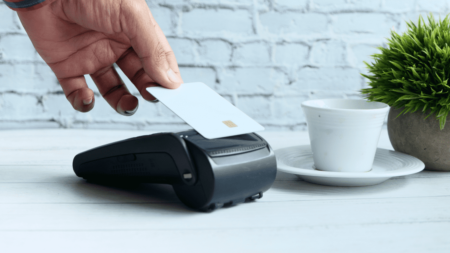Shopping, on its own, is not a problem. It is human to spend your money to satisfy your cravings and desires. However, the problem arises when you cannot control the desire to shop on impulse. If you happen to have an impulse shopping disorder, you are not alone.
According to a Finder Canada survey, 63% of Canadians have succumbed to impulsively shopping, with each person spending around $73.81 on average. Canadian customers do not only embrace online shopping but most are also addicted to the traditional “touch-and-feel” style of shopping.
A shopping disorder is a dangerous hobby that empties your bank account faster than you can replenish it. It is also very strenuous. Impulsive shopping can be defined as an abrupt desire to perform a purchase that is not on your shopping list, whereas shopping is said to be compulsive when it is performed for the sake of being relieved from an embarrassing situation.
In this article, we will be revealing few tested ways to help you get over your impulsive and compulsive shopping. These are simply tips to help you.
However, if you believe you have a persistent problem, it might be time to consult a mental health expert, counselor, or behavioural therapist.
Tips to Help You Stop Shopping Excessively
Let’s explore some helpful tips, shall we?
1. Determine the Actual Motive
It is advisable that you, first of all, identify the actual motive before you purchase a new product for the sake of boredom, sadness, frustration, or celebration.
You should know how you would want to feel as well as what you could do to have that feeling of excitement besides shopping. For instance, if you are bored, would talking to a friend or taking a walk offer some relief?
2. Avoid Sites Provoking You to Spend Money
Don’t go where you love spending money. Free yourself from self-encouragement and the temptation to shop by un-subscribing from any store newsletters that cause you to shop on impulse. Do not assist your friends’ shopping.
Cut down on visiting your favourite stores, especially ones where you do most of your impulse shopping purchases. Stay away from window shopping, give shopping magazines a break, and avoid scrolling through shopping blogs or social platforms.
3. Practice Gratitude
There is the saying, “It is not happiness that makes us grateful, but gratefulness that makes us happy”. Stop looking for things that will boost your happiness at the shopping mall.
If what you have does not offer you happiness, then, what you will obtain will not make you happy as well. The truth is, the more you acquire, the more likely you are to become depressed. Always offer gratitude for what you presently have.
4. Give Timing to Your Emotions
Timing is very crucial most particularly when dealing with impulsive shopping.
Whenever you are about to make an impulse purchase, just postpone the purchase for a day, then a week, try again for 30 days, and watch to see if you still have the same excitement as you did on the first day. There is a greater possibility that the desire would have faded away.
5. Stop the Excuses
If you are someone who shops excessively every day, chances are when you stop, you will begin to create excuses to start shopping again. You might not want to miss a sale due to FOMO (Fear Of Missing Out).
You might try convincing yourself that you need more outfits for your wardrobe. You might say to yourself that you deserve to make a shopping purchase. Stop the excuses. Just pay keen attention and when such excuses come to mind, take recourse to your real motive.
6. Try a 30-Day Wardrobe Challenge
Just in case you want to stop excessive buying of clothes, a perfect place to commence is by making great use of the items in your wardrobe.
If your impulse shopping has to do with fashion, chances are you have several items in your wardrobe that you have not worn in months or even years.
The 30-day wardrobe challenge offers you the perfect opportunity to wear these items. These forgotten items might become your new basic items.
7. Tidy Up Your Wardrobe
The possibility that you have several unused and forgotten items in your wardrobe is pretty high if you’re an impulse shopper. In this case, you might need to tidy up your wardrobe. This is also known as decluttering.
Decluttering gives you the chance to know items that are essential to you. Decluttering makes everyday fashion decisions quicker and easier. You’d go from ‘I don’t have anything to wear’ to ‘So many options!’
Moreover, decluttering can provide you more money in the bank if you sell some of your fairly used items either online or at delivery shops.
Decluttering also gives you more space to think clearly and eliminates the stress that causes you to shop impulsively.
8. Create a Financial Plan
You should create a plan for your earnings. If you have spare funds, create a separate savings account to save all your excess cash. You can also use budgeting apps to plan for finances in advance.
Final Thoughts
Excessive shopping is a major problem most Canadian customers face. It could either be impulsive shopping or compulsive shopping depending on what drives you to make the irregular shopping purchase.
It’s time to take charge by taking action and staying consistent.












